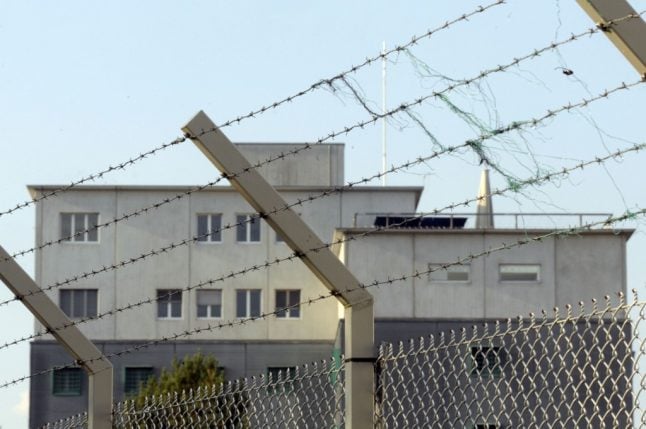It’s a statistic that is easy to jump on. A new report looking at prison populations in 47 European countries shows that Switzerland comes top of the table for prison escapes.
The escape rate for the Alpine country is 255 per 10,000 prisoners, against an average of just 42.6 for the nations covered in the new SPACE report produced by the University of Lausanne for the Council of Europe.
Read also: Crime in Switzerland – what the latest figures reveal
For France, the prisoner escape rate is 88 per 10,000 inmates and for Germany it is 61. In Spain, the figure is just two.
In fact, the only countries that come close to Switzerland are Finland (252 escapes per 10,000 prisoners) and Sweden (238).
But as report author Marcelo F. Aebi, a criminologist at the University of Lausanne, explains, the high Swiss rate is actually “good news”.
According to Aebi, the rate is the result of the fact that Switzerland, like Scandinavian countries, puts a strong emphasis on open and semi-open prison regimes to help prisoners adjust to life on the outside.
He told Swiss state broadcaster SRF that countries which follow this approach often have the lowest prisoner populations.
Read also: Sneak preview – Switzerland's new 'on-the-spot' fines for 2020
Switzerland has a prison population rate of 81 inmates per 100,000 residents while the average for the 47 countries in the SPACE report is 123.7.
The criminologist also said that countries using this open approach to prisoner reintegration into society have lower reoffending rates.
Studies suggest that in countries with more restrictive prison regimes, 50 percent of inmates are back inside within two years of being released from jail.
According to data from the Swiss Federal Statistics Office, 41 percent of people released from Swiss jails in 2012 were convicted of another offence within three years. Of these, just 15.5 percent ended up back in prison.
In short, the high rate of escapes in Switzerland is “the price you pay” for having a humane prison sentence, Aebi said.
Comparing apples with oranges
Meanwhile, in comments made to The Local, Aebi stressed that the figures in the SPACE report on prison escapes in different countries were “not strictly comparable”.
He said that he and the report’s fellow authors tried to avoid making comparisons for this reason, and that in some cases “apples were being compared with oranges”.
The Swiss escape figures in the SPACE report are based on 176 escapes in 2016.
Just six of these prisoners escaped from secure facilities.
The other 170 incidents (or 96.6 percent of cases) included escapes from an open institution, an open section of a closed institution, an unsecured work place, an accompanied prison leave, or during prison leave.
Of these 170 prisoners who escaped, 30 returned voluntarily within a week and 44 were arrested within a week. A further 59 had been arrested or had returned by the end of 2016 while 22 were still on the run. In 14 cases, the status of the escaped prisoner was listed as unknown.
Room for improvement
Asked how Switzerland could improve its penal system, Aebi from the University of Lausanne told The Local: “We need to know precisely what programs are being applied in prison for the rehabilitation of inmates and, whatever these programs are, they must be evaluated by external researchers.”
He said this was the only way to know what worked. “The main goal of prison is rehabilitation,” he said.
“Therefore, we need to do research on this topic.”



 Please whitelist us to continue reading.
Please whitelist us to continue reading.
Member comments